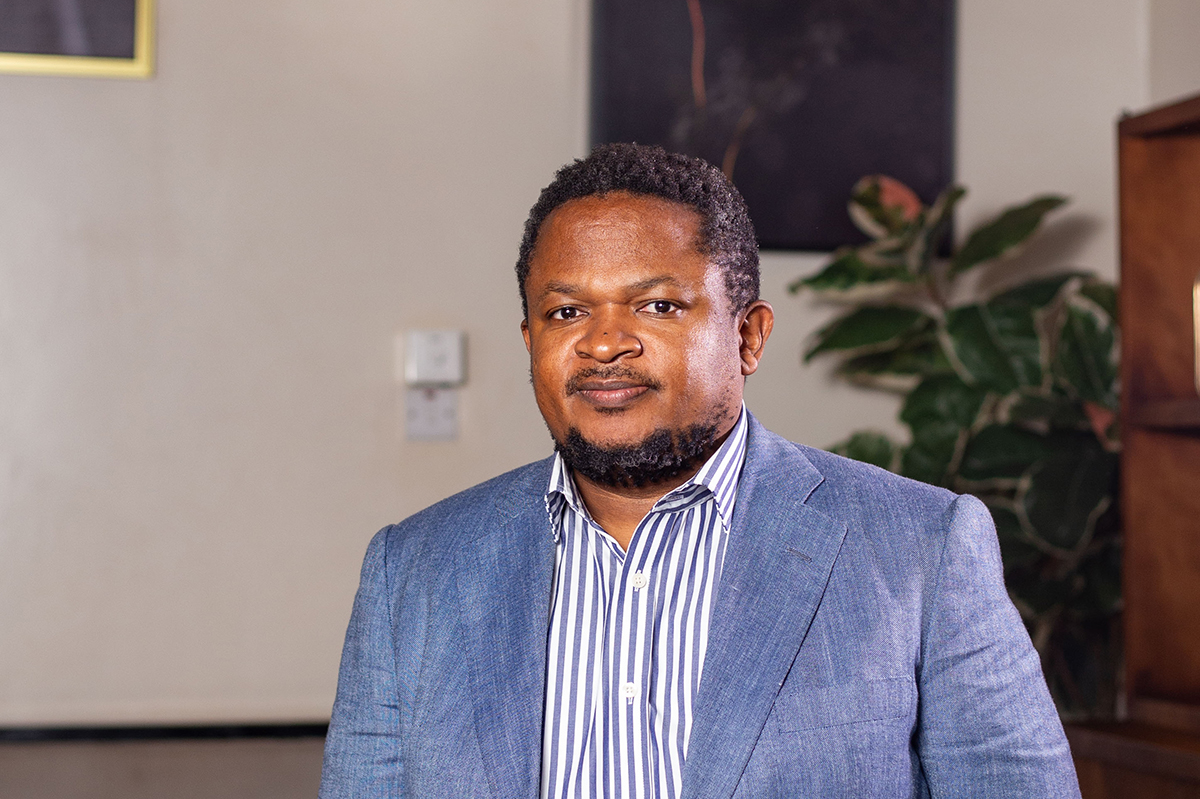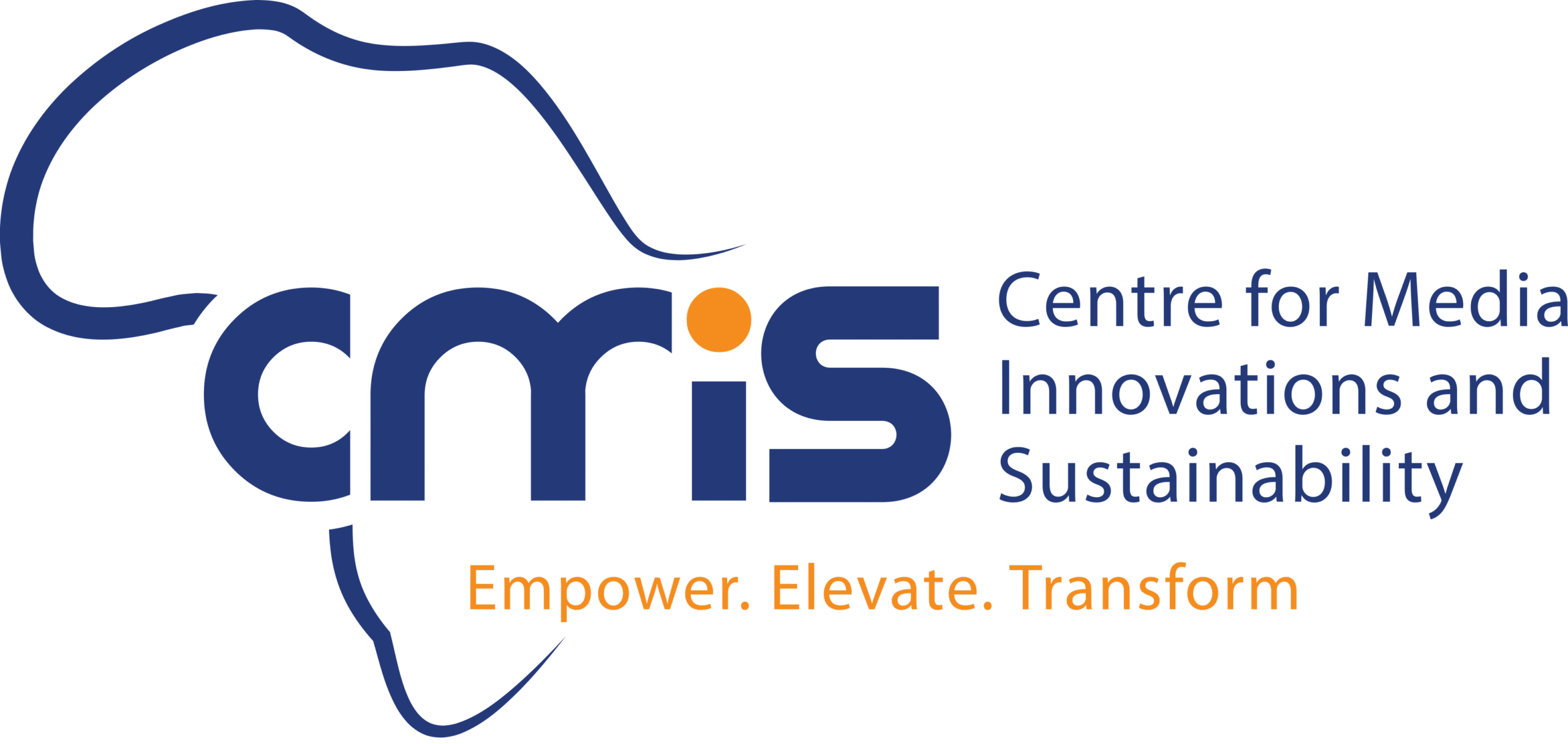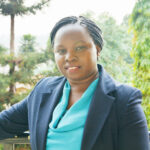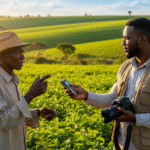
Q&A with Muhereza Kyamutetera, ED CMIS Africa: Good journalism doesn’t happen by accident—it happens because we choose to value it, protect it, and invest in it.
Q1. What is the Centre for Media Innovations & Sustainability (CMIS Africa), and why was it established?
A: CMIS Africa is a new initiative designed to rebuild and future-proof Africa’s journalism ecosystem—starting right here in Uganda. We are responding to a media environment that’s under-resourced, under-skilled, and under pressure from political and commercial interests. Journalism is too important to be left to chance. Our job is to equip journalists, media entrepreneurs, and media startups with the skills, resources, and networks they need to produce accurate, ethical, and impactful journalism—especially in the sectors that matter most for our development.
Q2. You’ve said “Good journalism is too important to be left to the media industry alone.” What do you mean by that?
A: For too long, we’ve left the health of journalism entirely to media owners and the market—and the results are clear: shrinking newsrooms, weak investigative capacity, and low public trust. Journalism is a public good. Governments, businesses, development partners, academia, civil society, and citizens all have a stake in it. We must work together to protect, invest in, and innovate around journalism so it can truly serve the public interest.
Q3. What gaps or challenges in African journalism is CMIS Africa specifically trying to address?
A: There are several: outdated business models, political interference, over-reliance on advertisers, under-resourced newsrooms, low and irregular pay, rising misinformation, weak regulation, and outdated training. Many journalists simply don’t have the tools, skills, or networks to report deeply on complex sectors like finance, energy, or climate change. CMIS Africa exists to close these gaps—by developing talent, testing new media business models, and fostering collaboration across sectors.
Q4. Why start CMIS Africa in Uganda, and how do you see it expanding across Africa?
A: Uganda is both a challenge and an opportunity. We have vibrant talent but a very fragile media infrastructure. If we can prove that a model for innovation and sustainability works here, it can be adapted to other African countries facing similar challenges. By 2030, we aim to have hubs in Kenya, Rwanda, and Tanzania, creating a regional network of resilient, ethical, and financially viable media enterprises.
Vision, Mission & Impact
Q5. What is CMIS Africa’s vision and long-term goal?
A: Our vision is simple but ambitious: to build a resilient, innovative, and sustainable journalism ecosystem that strengthens civic engagement, economic transformation, and democratic governance across Africa.
Q6. How will CMIS Africa measure success over the next three to five years?
A: Tangibly, we aim to train over 60 fellows, incubate at least 15 media startups, deliver 100+ in-depth sector stories, and host more than 20 multi-stakeholder dialogues. But beyond numbers, success for us means stronger public trust in journalism, better sector coverage, and more financially viable media ventures in the region.
Q7. How will this initiative contribute to Uganda’s Vision 2040 and NDP IV?
A: Vision 2040 and NDP IV hinge on the performance of high-impact sectors like finance, agriculture, energy, manufacturing, tourism, and ICT. These sectors can’t thrive without informed citizens, transparent governance, and robust accountability—all of which depend on quality journalism. CMIS Africa will make sure the media is equipped to tell those stories well.
Core Programmes
Q8. What are CMIS Africa’s main focus areas and programmes?
A: We work in four main areas:
- Media Innovation & Incubation Labs – to support media startups with space, mentorship, seed funding, and tools.
- Fellowships & Training – to develop a new generation of specialist journalists.
- Research & Insights – to produce data that guides media policy and innovation.
- Ecosystem Engagement – to bring together media, business, government, and academia to solve problems collectively.
Q9. How do the Media Innovation & Incubation Labs work in practice?
A: Think of them as a testbed for new ideas in journalism. Startups will get co-working space, access to mentors, business development support, legal advice, and the chance to pitch to funders. We encourage experimentation with formats like data visualisations, short-form video, AI-assisted reporting, and mobile-first storytelling—always with an eye on sustainability and public interest.
Q10. Can you tell us more about the Fellowship Programme and who it’s targeting?
A: Our two-year fellowship targets promising journalism students, early-career reporters, and even newsroom changemakers who want to specialise in high-impact sectors. Fellows will get hands-on training, sector exposure, mentorship, stipends, and the opportunity to publish their work with reputable platforms like CEO East Africa Magazine.
Core Programmes
Q11. How will CMIS Africa support media startups to achieve financial sustainability?
A: One of the biggest weaknesses in African media is over-reliance on a single revenue source, usually advertising. This leaves newsrooms vulnerable to market shocks or the influence of advertisers. At CMIS Africa, our incubation process helps startups design diversified, resilient business models from the very beginning. This includes exploring subscription services, events, sponsored content that meets ethical standards, branded data products, content licensing, and even consulting services.
We provide direct mentorship from experienced media entrepreneurs, connect startups with potential investors, and introduce them to grant and sponsorship opportunities. Just as importantly, we teach them how to measure their impact and articulate it to funders and advertisers. By the time a startup graduates from our programme, it will have tested multiple revenue streams, refined its editorial and business strategy, and built the networks it needs to operate sustainably.
Q12. What role will research and policy advocacy play in your work?
A: Without solid data, media reform efforts are just guesswork. CMIS Africa will invest heavily in generating credible research on the state of journalism, audience trends, revenue models, and sector coverage gaps. This will include white papers, policy briefs, and sector reports that will be available to media practitioners, policymakers, academia, and development partners.
Our policy advocacy is about influencing change in the enabling environment for journalism—pushing for fairer regulations, media-friendly policies, and better funding frameworks. For example, if our research shows that rural audiences lack access to reliable information on agriculture or climate change, we’ll use that evidence to advocate for interventions—whether that’s targeted training for rural journalists or policy reforms to support community media.
Sector Focus
Q13. Why is CMIS Africa focusing on sectors like finance, agriculture, tourism, energy, manufacturing, ICT, ESG, human capital, and infrastructure?
A: These sectors are the lifeblood of Uganda’s economy and are central to the country’s Vision 2040 and NDP IV development agenda. They shape everything from employment and exports to public service delivery and environmental sustainability. Yet, they are often underreported because they require specialised knowledge, data literacy, and access to sector experts—things that most newsrooms can’t afford.
By focusing on these sectors, we are ensuring journalists can unpack complex issues for the public—helping citizens understand how a policy change in the energy sector affects electricity prices, or how new investment in manufacturing could translate into jobs. This kind of specialised reporting not only serves the public but also strengthens accountability, attracts investment, and promotes informed decision-making across the board.
Q14. How will you ensure journalists are equipped to report on these complex and technical subjects?
A: Our approach is practical, immersive, and sustained. First, we bring in sector experts to break down policies, technical processes, and data into language journalists can work with. Then, we take journalists into the field—whether that’s a manufacturing plant, an oil drilling site, a fintech hub, or a rural cooperative—to see these issues up close.
We also invest in continuous mentorship, so learning doesn’t stop after a workshop. Fellows and residents have access to editors and sector specialists who can review their stories, guide their sourcing, and ensure their reporting is accurate, balanced, and impactful. Over time, this builds a cadre of journalists who can confidently tackle complex subjects, win audience trust, and set higher industry standards.
Participation & Opportunities
Q15. Who can join CMIS Africa, and how can they apply?
A: CMIS Africa is open to a wide spectrum of participants—media startups, freelance journalists, journalism students, content creators, and even experienced reporters looking to pivot into specialist reporting. The common thread is a commitment to ethical, high-quality journalism and a willingness to innovate.
Applicants go through a structured selection process that assesses innovation potential, social impact focus, and their alignment with our core values. We want to work with people who not only have great ideas but also the drive to execute them and the integrity to protect public interest.
Q16. What opportunities exist for young journalists or journalism students?
A: For young journalists, our Fellowship Programme is a gateway to the kind of career-defining training and exposure that is hard to find in traditional newsroom setups. Fellows receive stipends so they can focus on their craft, mentorship from senior editors and subject experts, and the chance to publish on respected platforms.
Beyond the fellowship, students can join short training courses, participate in hackathons and storytelling competitions, or contribute to collaborative investigations. We also connect them to internships in partner newsrooms and sector organisations, giving them both newsroom and industry experience early in their careers.
Q17. How can existing media houses benefit from CMIS Africa?
A: Established media houses face their own challenges—shrinking revenues, competition from digital platforms, and the need to transition to new content formats. CMIS Africa can help them upskill their staff, diversify revenue streams, and experiment with new storytelling formats in a low-risk environment.
They can send staff to our sector-specific trainings, partner with us on investigative or solutions journalism projects, and use our research to refine their editorial strategies. We also offer content syndication opportunities, allowing media houses to access high-quality, in-depth stories produced by our fellows and residents.
Q18. Is there space for non-journalists—such as content creators, researchers, or technologists—to get involved?
A: Absolutely. Journalism is no longer just about reporters and editors. Today’s storytelling involves data analysts, videographers, app developers, social media strategists, researchers, and even drone operators. We welcome people from these fields to collaborate on projects that combine technical expertise with journalistic values.
For example, a data scientist could work with a journalist to visualise climate change impacts in rural Uganda, or a software developer could help create an app for community reporting. The point is to bring together diverse skills to make journalism more engaging, accessible, and impactful.
Partnerships & Collaboration
Q19. How can development partners, donors, and private sector organisations work with CMIS Africa?
A: Partnerships are at the heart of our model. Development partners can fund fellowships, thematic reporting, or sector research. Donors can help us expand our innovation labs or host media policy dialogues. Private sector organisations can offer sector expertise, sponsor innovation challenges, or support storytelling around their industry in a way that serves public interest.
We believe in mutual value—our partners gain credible platforms for thought leadership, and we gain the resources and insights needed to strengthen journalism.
Q20. What’s in it for businesses that partner with CMIS Africa?
A: Businesses benefit from operating in a market where consumers are well-informed, competition is fair, and trust in information is high. A partnership with CMIS Africa can help them tell their stories authentically, showcase their innovations, and highlight their ESG commitments—without compromising editorial independence. In the long run, a healthy media ecosystem is good for business because it strengthens markets, transparency, and stakeholder confidence.
Q21. How will you ensure partnerships don’t compromise editorial independence?
A: Editorial independence is non-negotiable. Every partnership is guided by clear Memoranda of Understanding that spell out roles, deliverables, and boundaries. We do not allow funders to dictate content. Instead, we agree on broad thematic areas, and the editorial execution remains in the hands of independent journalists and editors.
We also diversify our funding sources so that no single partner has undue influence. This protects our credibility and, more importantly, the public’s trust in the work we produce.
Sustainability & Funding
Q22. How will CMIS Africa sustain itself financially in the long term?
A: Our sustainability plan rests on four pillars: diversified funding, earned income, strategic partnerships, and institutional resilience. In the early years, donor and grant funding will play a significant role. But from the start, we’re building income streams from paid training programmes, consulting, content syndication, sponsored thematic reporting, and events.
We also aim to establish long-term CSR and ESG alliances with corporates who share our values. By Year 5, our goal is for at least half of our operational budget to come from earned income.
Q23. Will fellows and startups be expected to pay for participation, or is it fully funded?
A: For fellows, the programme is fully funded—we cover stipends, training, and mentorship so they can focus entirely on producing impactful journalism. For startups, our incubation services are subsidised, with some cost-sharing to ensure commitment and ownership. The idea is not to make money from participants but to invest in them so they can succeed and, in turn, contribute to a stronger media ecosystem.
Q24. How will you balance donor support with building revenue-generating models?
A: Donor support is critical for infrastructure, programme development, and early-stage risk-taking. But we see it as a launchpad, not a crutch. Every programme we run will have a sustainability lens—asking how it can eventually generate revenue or attract ongoing partner investment without compromising its mission.
For example, a donor-funded training course could evolve into a paid certification programme. An investigative grant could lead to a content syndication deal. It’s about building long-term value from initial donor investments.
Looking Ahead
Q25. Where do you see CMIS Africa in 2030?
A: By 2030, I see CMIS Africa operating as a recognised Centre of Excellence in media innovation and sustainability across East Africa, with active hubs in at least four countries. We’ll have a network of 500+ alumni—journalists, editors, media entrepreneurs—who are shaping the profession, influencing policy, and leading resilient media organisations.
Q26. What kind of legacy do you hope this initiative will leave for African journalism?
A: I want CMIS Africa to be remembered as the place where a new generation of African journalism was born—credible, innovative, financially viable, and deeply committed to public interest. A place that not only trained journalists but also transformed the structures and cultures of media so they could thrive for decades to come.
Q27. What’s your call to action for journalists, media houses, businesses, and the public?
A: My message is simple: journalism belongs to all of us. If you’re a journalist, invest in your skills and your integrity. If you’re a media house, embrace innovation and collaboration. If you’re a business, see journalism not as a threat but as a partner in building transparency and trust. And if you’re a citizen, demand better information and support the platforms that provide it.
Good journalism doesn’t happen by accident—it happens because we choose to value it, protect it, and invest in it.
![]()







